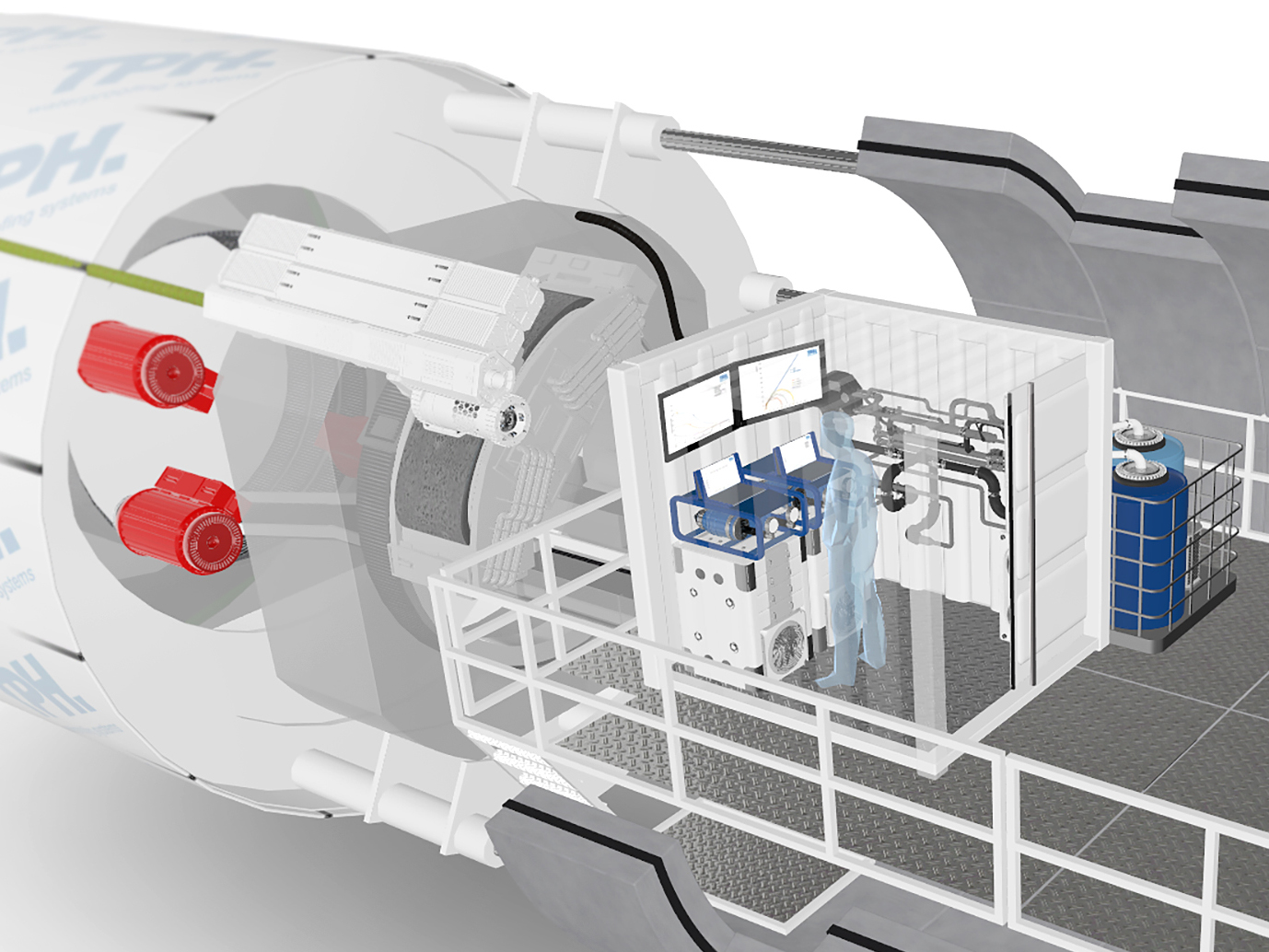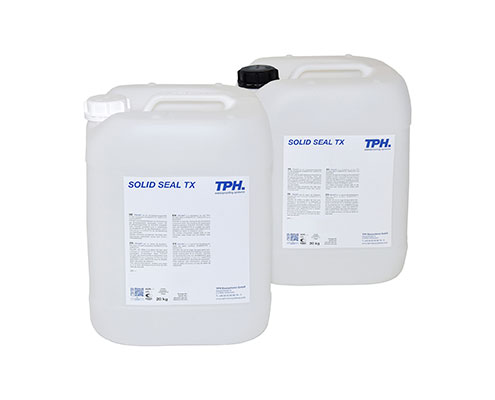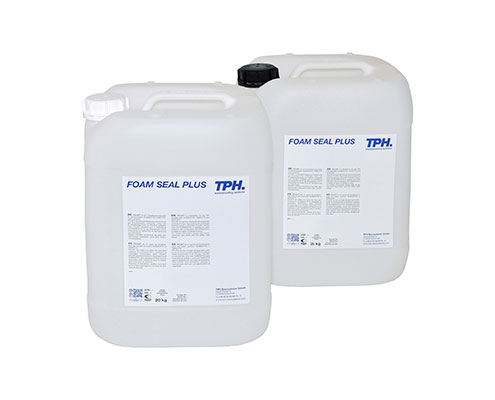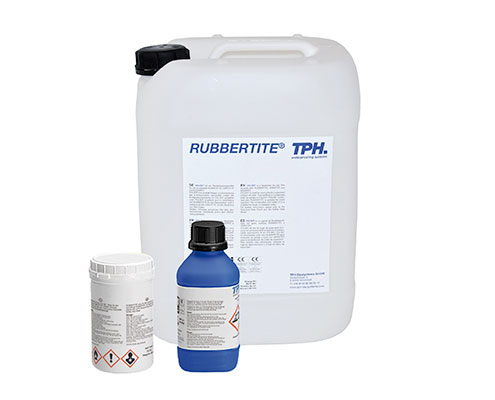
Mechanized Tunnelling with TBM
Polymer Stabilized Geoinjection PSGi® in Mechanized Tunnelling with TBM
In machine driven mechanized tunnelling, unfavourable ground and rock conditions regularly impede rapid progress. When approaching fault zones, strong water ingress, post- and overburdening can occur, up to the point of the tunnel boring machine (TBM) getting stuck or sinking. The most frequent causes of such time-consuming and thus cost-intensive delays and, last but not least, risks relevant to work safety are loose rock fields with running water, as well as water-filled sand lenses and finally caverns, non-viable fault zones and karst caves.
Such fault zones are consolidated by injection ahead and prepared for further driving. These injections are carried out directly through specially created drilling lanes in the cutting wheel of the TBM using injection lances or HDPE pipes.
Instead of mineral materials such as cements, which in addition to a high technical and logistical effort on the construction site also entail a considerable loss of time due to their very slow reaction time, fillers and stabilisers specially developed for this purpose are recommended today. These materials help to reduce the unproductive forced breaks during mechanical tunnel driving to a minimum.
Further advantages of this cost-efficient method are – besides the extremely low space and material requirements in the drill head – also the reaction behaviour of the chemical materials which can be optimised for the respective purpose. These prevent unnecessarily high material requirements, which can be caused by elution or the ineffective and therefore pointless flow of mineral injection material.
When selecting materials, it is of course always important to carry out comprehensive tests from an environmental point of view in order to be able to reliably exclude any impairment of groundwater and other negative environmental effects from the outset.
Watch the video to see exemplary situations in mechanized tunnelling and their solutions!

Thixotropic, very fast reacting silicate resin
- Thixotropic (no flowing away, processing also overhead)
- Very good adhesive properties
- Particularly rapid strength development
- No mixing with water
Highly active 2 component foaming system based on silicate resin, contains flame retardants
- For filling of cavities in tunneling, mining industry and civil engineering
- For solidifying of soil, gravel and rocks
- Self compacting due to high foaming factor
- For stopping of water inrush
- Very low viscous
- Very good penetration
- Proven stability of at least 20 years



